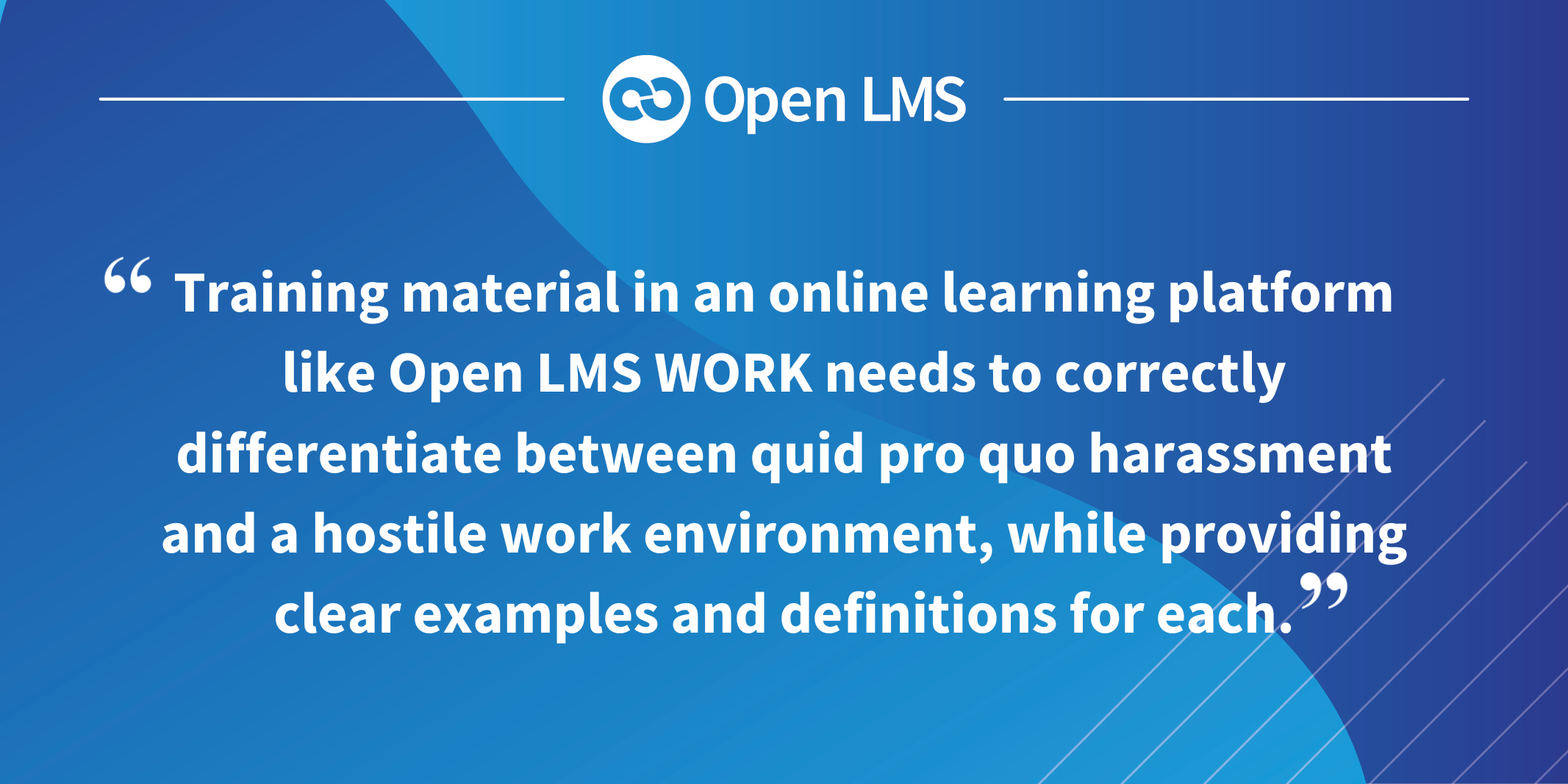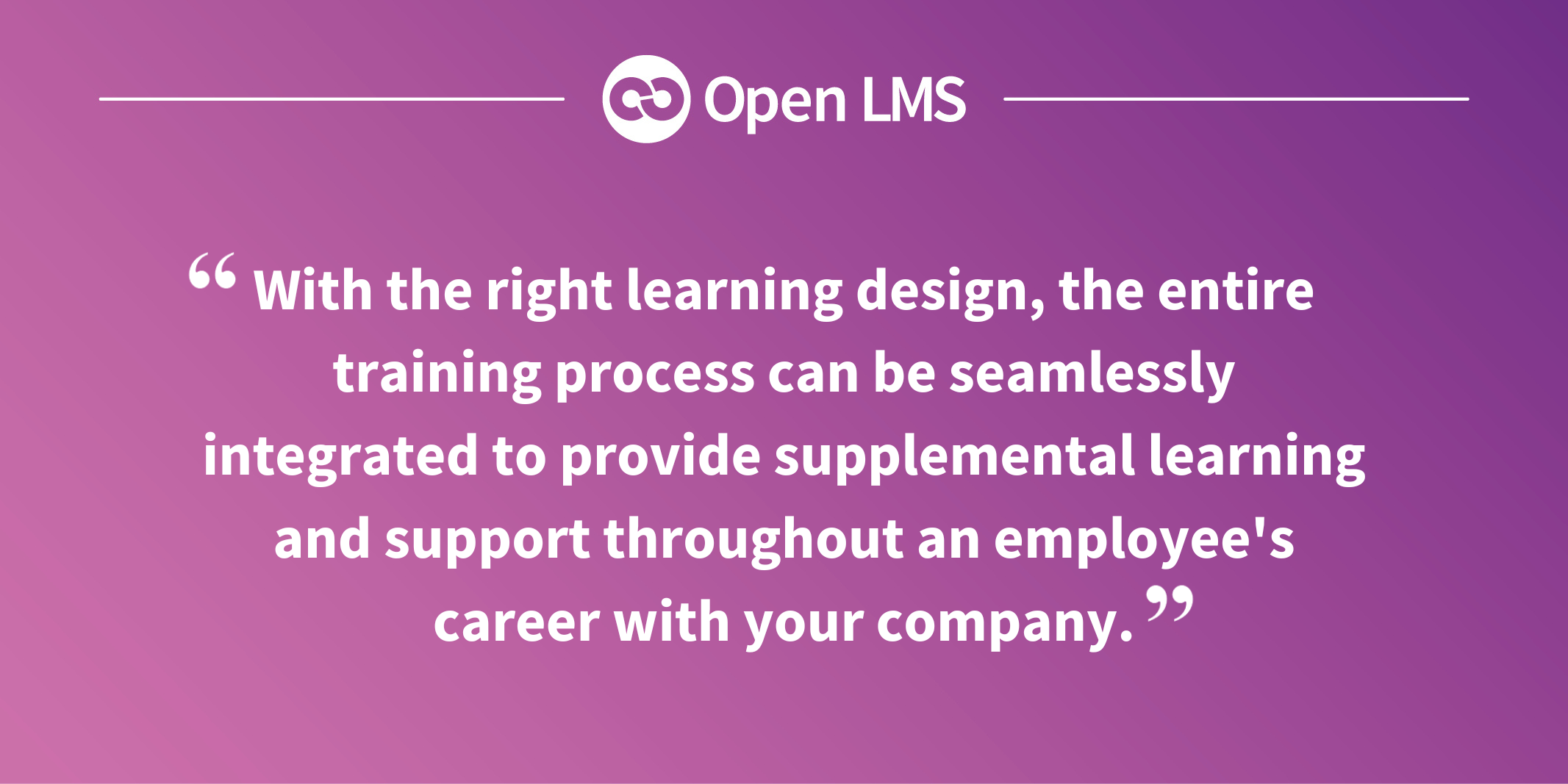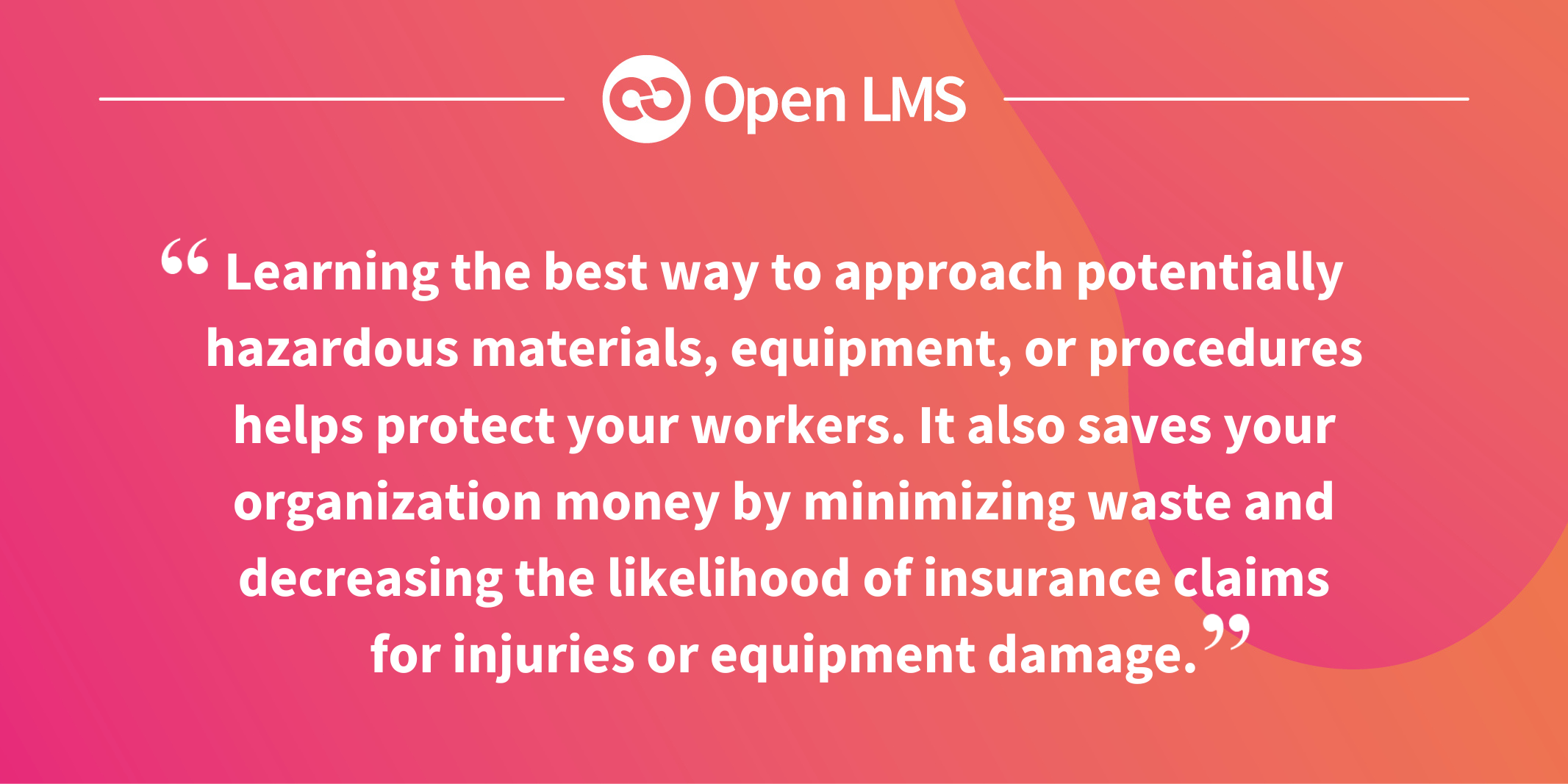6 Common Corporate Training Programs HR Managers Can Provide Online With Fantastic Results
Developing a robust corporate training program from the ground up presents unique challenges for every organization. You have to account for your specific approach to onboarding, compliance, and the additional training courses that ensure your workforce is ready to perform at its best. That said, there may be times when some of your employees need to complete courses that they’ve already taken at another organization or in a previous role.
Although retreading this ground may feel redundant to these workers, topics such as diversity training and first aid are still necessary in your corporate training program to address any slight discrepancies in policies that might exist between different organizations. There can even be differences in compliance requirements, so it’s crucial that your training program covers everything that’s pertinent to your organization so you and your employees stay compliant.
Regardless of the organization or industry you work in, these essential courses need to be engaging to ensure that learners retain the information within. They must also help learners efficiently absorb your specific company policies, procedures, and the responsibilities of their role. Fortunately, an online learning solution such as a corporate learning management system (LMS) can help revamp and transform the dissemination of the most common organizational training programs.
A business LMS can help HR managers streamline onboarding processes and minimize the time it takes to complete required L&D, allowing your team members to start working sooner rather than later. These courses are often essential or can be applied to almost any role within any department of your organization, and with a more efficient and engaging solution to deliver them, can be more effective and streamlined within your learning plans.
KEEP READING | ‘5 Ways Digital Learning Keeps Your Hybrid Workforce Engaged’

6 Common Corporate Training Programs HR Managers Should Consider Shifting to an Online Environment
Employees will likely have had exposure to the following courses in a previous workplace or early in their career. Still, it’s vital that they receive the most up-to-date information available to them so they remain ready to handle these topics if they arise. Switching these training modules to an online format makes them easy to update and deliver to your workforce—they also become easier to track, helping you prove employee compliance where legally required and organizationally necessary.
Sexual Harassment
Core learning modules that cover the federal and state laws concerning sexual harassment in the workplace are a staple of learning, development and compliance programs. Employees have a right to know what constitutes sexual harassment to ensure they are aware of boundaries and know how to respond if another employee crosses them. Training material delivered via an online learning platform like Open LMS WORK needs to correctly differentiate between quid pro quo harassment and a hostile work environment, while providing clear examples and definitions for each.
Racial Discrimination
Workplace discrimination law and federal civil rights law both put forth harsh sanctions for racial discrimination against employees, subcontractors, and customers. The relevant recourse and penalties vary from jurisdiction to jurisdiction where state laws are concerned, but federal guidelines are universal in the United States, and employees need to understand your policies for compliance with those laws. If you operate in other countries or territories, it’s essential that your employees are also familiar with any rules and regulations that exist in those locales.
More importantly, though, they also need to understand how to connect to the people in the company who are positioned to help them report issues with racial discrimination and resolve them. That means personalizing the training to your company and providing clear resources for seeking guidance if an employee has questions about policies or problems to report.
Diversity
In addition to the legal and procedural information covered in racial discrimination response training courses, diversity courses are commonly implemented to help employees understand one another and communicate better. They can include a variety of topics, from cultural exchange studies that let employees share their experiences and perspectives, to training in the best ways to use inclusive language to help everyone feel welcome in the workplace.
These resources can help break down communication barriers and prevent misconceptions for employees from a variety of backgrounds, helping to prevent conflicts before they arise by promoting understanding. If you don’t have in-house diversity courses or the resources to create them, off-the-shelf training modules and microlearning courses from Open LMS’s sibling company, Affirmity, are a great option to ensure your employees have the diversity training they need.
READ MORE ABOUT AFFIRMITY | ‘Open LMS Expands Workforce Compliance Training Catalog Through Affirmity Partnership’

Corporate Culture
Another common line of training is to provide information on the organization's corporate culture and makeup. This training is often customized to the employee's role, with additional insight provided for those who are mentored onto a specific career track.
The most basic level of modules, those presented to all employees, usually include information about the company's volume of business, number of employees, facility locations, and departments. This information helps employees understand the organization's size and mission better, and it also gives you the opportunity to make sure everyone knows your key officers and their roles.
Modules for those being tracked into management or other specialized roles tend to include more role-specific training. Common topics include: expectations for professional decorum, rules about communication internally and externally, and guidelines that help learners identify when it’s time to improvise and when it’s time to escalate the decision-making to someone with more room to maneuver.
Executive-track training topics include leadership philosophy, and development designed to help professionalize your next generation of key decision makers. With the right learning design, the entire training process can be seamlessly integrated to provide supplemental learning and support throughout an employee's career with your company.
READ MORE ABOUT CORPORATE CULTURE | ‘How a Business LMS Can Help Create a Thriving Workplace Culture’

Safety Protocols and PPE Use
Training in the safe operation of machinery and the use of the right personal protective equipment (PPE) is an essential area of employee compliance training. It’s also an area of employee education that needs to be highly customized to your company and the employee's role.
Learning the best way to approach potentially hazardous materials, equipment, or procedures helps protect your workers. It also saves your organization money by minimizing waste and decreasing the likelihood of insurance claims for injuries or equipment damage. Additionally, dress code and proper work wear is an essential training topic to ensure employees wear appropriate attire to perform their role.
First Aid and Emergency Response
This learning is often paired with training in safe equipment operation and PPE use, but it’s also a useful topic to cover independently. Emergency response training should include not only information about who to contact for assistance with first aid and where to find supplies, but also key procedures for reporting and documenting workplace injuries. Creating a chain of documentation helps smooth over the coverage of medical costs for serious injuries while establishing who to contact and what the preferred location for emergency treatment will be at each facility you operate.
Bribery and Data Security
Bribery prevention and data security training are critical for protecting both employees and the organization from serious legal and financial consequences. Bribery awareness modules should clearly outline what constitutes improper conduct, including offering or accepting gifts, favors, or payments that could influence decision-making. Employees also need to understand reporting protocols so they know how to raise concerns safely and in compliance with regulations.
Data security training ensures employees are equipped to safeguard sensitive company and client information. Topics should include secure password practices, recognizing phishing attempts, and following company policies for handling confidential data. Delivering these modules online makes it easy to keep content updated with the latest regulatory requirements and cybersecurity best practices, while also tracking completion for compliance purposes.
Ready to Get Started?
The right LMS can help you effortlessly streamline and organize these common corporate training programs. A solution that provides the flexibility and functionality to build hierarchies, personalized learning paths, and competency-based training programs allows you to create even more efficient and engaging learning programs, ultimately driving your business forward and growing your bottom line.
For more information on building a learning ecosystem that accommodates all your corporate training course needs, take a virtual tour of Open LMS or request a demo today!